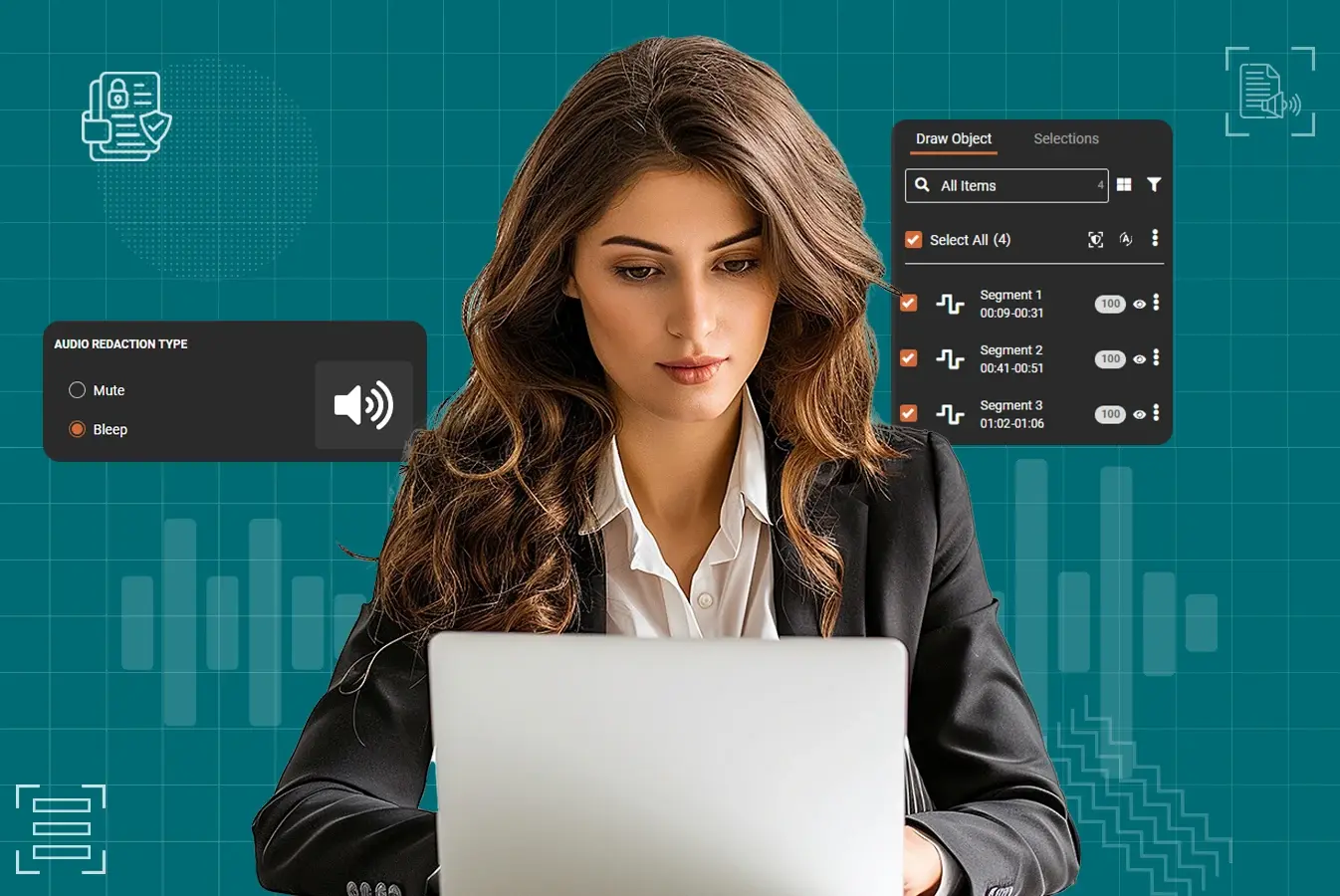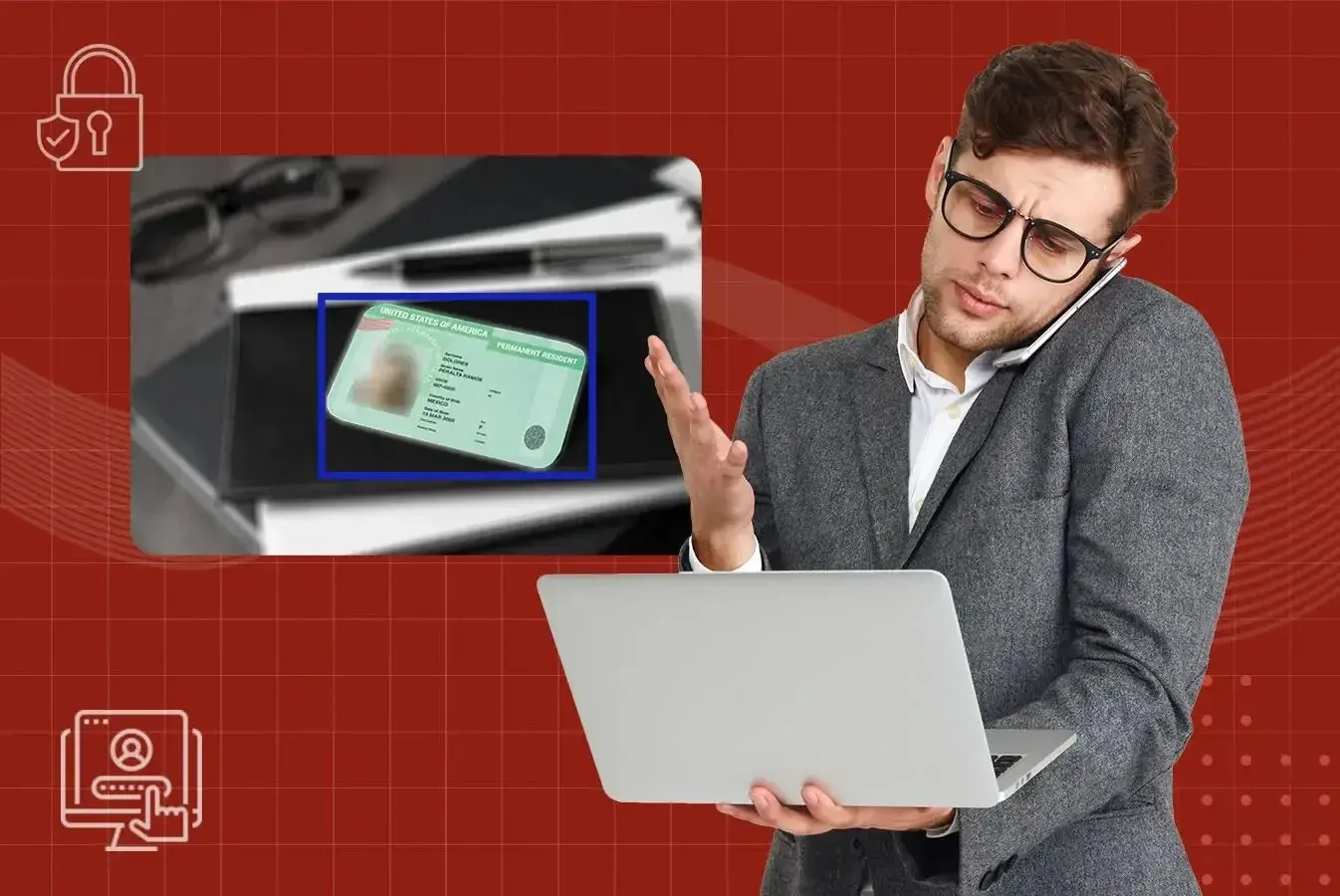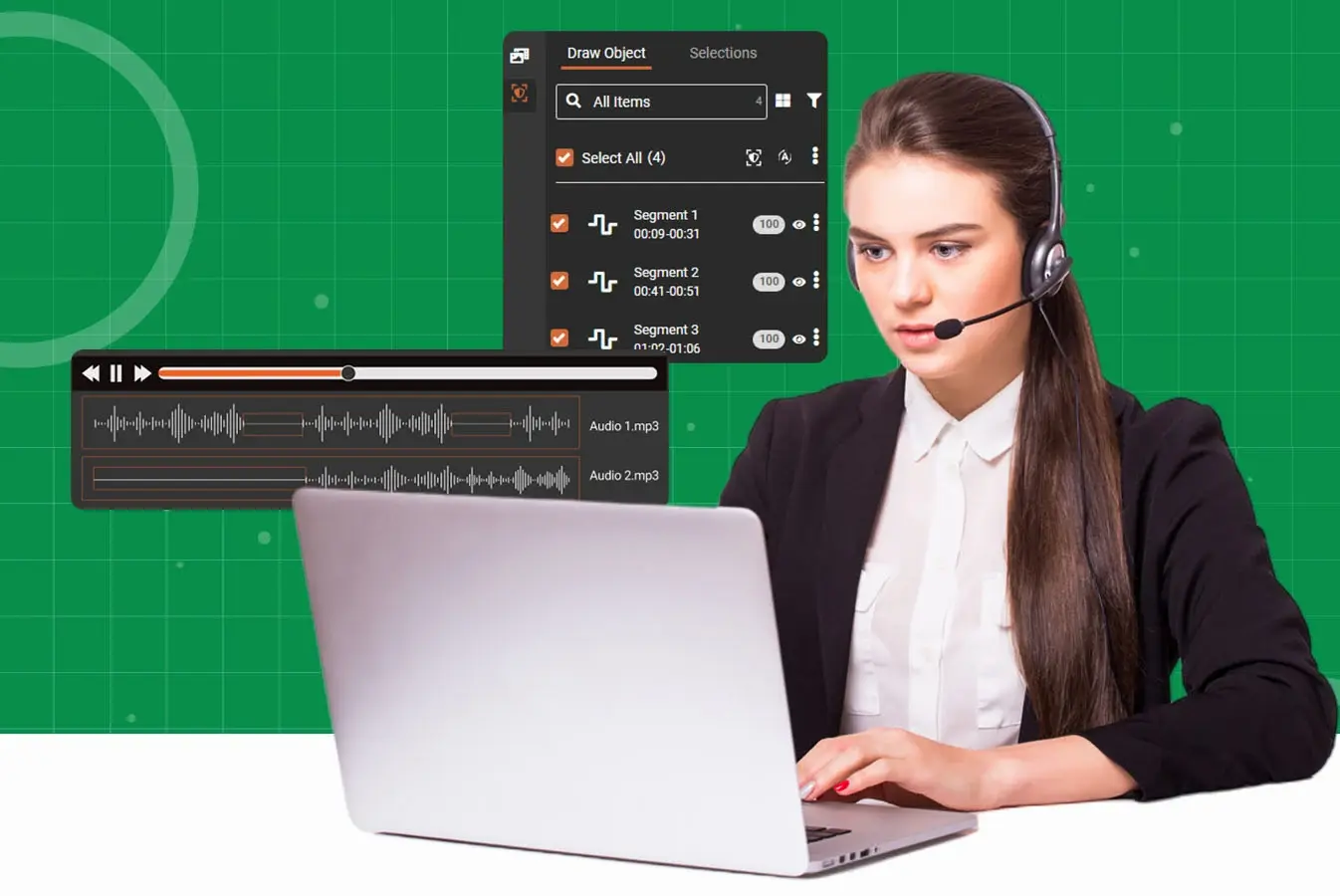Achieve Data Privacy and Compliance with Bulk Audio Redaction Software
by Daniyal Hassan, Last updated: December 6, 2024, Code:

Imagine this: Your organization deals with a mountain of audio recordings. Sales calls, customer service interactions, recorded meetings—it's an ocean of information. But that ocean holds sensitive data—personal identifiers, financial info, healthcare details. Sound familiar? And now, data privacy regulations like GDPR, HIPAA, and CCPA mean mishandling that information isn’t just a slip-up; it’s a financial, reputational, and legal catastrophe waiting to happen.
In 2024, data privacy remains a paramount concern for organizations handling sensitive customer information. Non-compliance with regulations such as GDPR, HIPAA, and CCPA can result in substantial financial penalties. For instance, the European Union's General Data Protection Regulation (GDPR) has led to fines totaling over €4 billion since its enforcement in 2018, with the average fine amounting to €2,142,712 across all countries.
To handle this risk, compliance is no longer optional. Every single audio recording needs to be scrubbed of sensitive data, either for external regulations or internal compliance policies. But here’s the kicker: the sheer scale and frequency of these recordings make manual redaction not only unrealistic but impossible. This is where bulk audio redaction software becomes not just useful but essential.
The Overwhelming Challenge of Audio Data Compliance
In 2024, data privacy is a top priority for any business dealing with sensitive customer information. Companies are expected to protect data meticulously, with non-compliance penalties that could cripple most businesses. This is a pressing issue for businesses across industries like healthcare, finance, and customer service, where audio recordings are not only frequent but heavily regulated.
And if you're in a role responsible for compliance or IT security, you've probably noticed: Audio is uniquely challenging. Unlike text, which is relatively easy to scan and redact, audio requires technology capable of identifying and removing sensitive information without compromising the recording's usability or integrity.
The scale is the next layer of the problem. Many organizations generate thousands—if not millions—of hours of audio recordings every year. These files are valuable for training, quality assurance, and operational insights. But reviewing and redacting them manually is simply out of the question.
The Hidden Dangers of Non-Compliance in Audio Data
Now, let’s get to the heart of the matter: what happens if you don’t meet compliance? Here are a few scenarios that might ring a bell.
- Penalties and Fines: Under GDPR, HIPAA, or CCPA, penalties for data breaches or non-compliance can range from hefty fines to restrictions that could put a stop to business as usual.
- Data Breaches and Reputational Damage: A single breach of private data in an audio recording could lead to lawsuits, negative press, and loss of customer trust.
- Operational Setbacks: Attempting to manage compliance with outdated or manual processes slows down operational efficiency, impacting your organization’s ability to focus on growth and innovation.
So, compliance isn’t just a checkbox exercise. It’s a safeguard for your organization’s future.
Why Bulk Audio Redaction Software is a Game-Changer
This is where bulk audio redaction software saves the day. Purpose-built to handle large volumes of audio data, this software automates the entire redaction process. It does this by using AI-driven tools that recognize, categorize, and selectively remove sensitive data without losing valuable information for your team.
Here’s a deeper dive into what bulk audio redaction software offers:
- Automated Redaction at Scale: Automation is the name of the game. Advanced audio redaction software can process thousands of hours of recordings in a fraction of the time it would take humans. It identifies and removes sensitive information in real time, creating redacted versions ready for safe storage or sharing.
- Accuracy and Consistency: AI algorithms don’t have off days. They’re precise, consistent, and incredibly accurate in identifying sensitive information like names, dates, addresses, and financial information. This accuracy ensures compliance and minimizes the risk of human error.
- Comprehensive Data Privacy Compliance: The software is equipped to meet compliance standards across various industries. Whether it’s GDPR for European customers, HIPAA for healthcare in the US, or CCPA for California residents, bulk audio redaction software supports your business in maintaining compliance seamlessly.
- Flexible Deployment Options: The best solutions offer flexible deployment options, from on-premises solutions for high-security organizations to cloud-based services that scale with your needs. This flexibility ensures you have a setup that fits your organization’s specific security policies and technical requirements.
- Time and Cost Savings: By eliminating manual review and redaction, bulk audio redaction software reduces time spent on compliance processes, freeing your team for more strategic tasks.
- Enhanced Customer Trust: When customers know their data is handled with respect and compliance, they’re more likely to trust your organization. This trust translates into brand loyalty, which in today’s competitive landscape, is invaluable.
Implementing Bulk Audio Redaction in Your Organization
So, how do you choose the right bulk audio redaction solution? Here are some steps to guide you through implementation:
- Identify Your Compliance Needs: Start by defining what compliance looks like for your organization. Are you primarily concerned with GDPR? HIPAA? CCPA? Ensure the software you choose can meet those regulatory requirements.
- Assess Volume and Scalability: Your audio redaction needs will differ based on the volume of recordings and the frequency at which they’re generated. Look for software that can scale with your organization’s needs.
- Choose the Right Deployment Option: If your organization requires high security, an on-premises solution may be best. For flexibility and easier integration, cloud-based solutions are often ideal.
- Integrate with Existing Workflows: Select software that seamlessly fits into your current workflows. The best solutions are API-enabled, meaning they can plug directly into your Customer Relationship Management (CRM) system, call center software, or any other platform where audio recordings are processed. This integration will save your team from having to toggle between systems and ensures a smoother, more efficient workflow.
- Train Your Team: Although bulk audio redaction software is designed to be intuitive, it’s essential to ensure your team understands how to use the solution effectively. Proper training will help maximize the software’s potential and ensure everyone involved is comfortable with its capabilities and limitations.
- Monitor and Optimize: Compliance isn’t a one-time box to check. Regularly monitor the software’s effectiveness to ensure that it keeps up with changes in data privacy regulations. Leading solutions often provide built-in analytics, enabling you to track performance and adjust settings for improved accuracy and compliance over time.
- Choose Compliance-Focused Features: Advanced audio redaction software offers features specifically designed for data privacy and regulatory compliance. Look for capabilities like speaker identification, AI-driven voice recognition, and customizable redaction options that allow you to tailor the software’s detection parameters to match the regulations relevant to your industry.
Key Features to Look for in Bulk Audio Redaction Software
Choosing the right bulk audio redaction software involves assessing which features best meet your organization’s compliance needs. Here are some must-have features:
- Speech-to-Text Conversion: The software should convert audio to text reliably, enabling easier identification of sensitive information. The accuracy of this feature directly impacts the effectiveness of redaction.
- Customizable Redaction Parameters: The best solutions allow you to customize what needs redaction, whether it’s PII, financial details, health information, or other sensitive identifiers.
- Scalable Architecture: A solution that scales effortlessly is crucial, especially if your organization handles thousands of hours of audio data. Look for cloud-based options with elastic scalability or on-premises solutions that offer modularity.
- Automated Speaker Recognition: Advanced software will identify different speakers within an audio file, which is useful for redacting only specific voices (e.g., the customer’s voice but not the representative’s) based on your compliance requirements.
- Secure Data Handling: Since redaction involves processing sensitive data, ensure the software uses secure data handling practices. Look for features like end-to-end encryption, access controls, and secure data storage to protect redacted files.
- Comprehensive Compliance Reporting: Reporting capabilities allow your team to audit and confirm that redaction has been performed correctly. Built-in reporting also aids in demonstrating compliance during data audits and privacy assessments.
- User-Friendly Interface: Redaction software should be intuitive and straightforward to use, requiring minimal training. This is particularly helpful for non-technical users involved in the redaction process.
Addressing Concerns and Gaining Buy-In Across the Organization
Now, let’s talk about some challenges organizations often face when implementing bulk audio redaction software and how to address them.
- Budget Constraints: Investing in redaction software might initially seem costly. However, when you weigh it against the potential costs of non-compliance—fines, litigation, loss of customer trust—it’s an investment in risk management and operational efficiency.
- Data Security Concerns: With data breaches on the rise, some stakeholders may worry about entrusting sensitive information to software, especially in the cloud. Address these concerns by choosing a solution with strong security protocols and providing options for on-premises deployment if necessary.
- Change Management: Employees may be resistant to adopting new software due to workflow changes. Counter this by involving relevant teams in the selection and implementation process and providing comprehensive training. Demonstrate how the software will reduce time spent on tedious tasks, allowing them to focus on more strategic work.
How Bulk Audio Redaction Improves Business Outcomes
Using bulk audio redaction software is not only about staying compliant; it’s also a powerful tool for driving business value. Let’s explore a few of these additional benefits:
- Enhanced Customer Trust and Satisfaction: When customers know their information is handled with the highest standards of data privacy, it builds trust. This trust translates into customer loyalty, a crucial advantage in today’s competitive markets.
- Operational Efficiency: With automated redaction, your team saves hours that would have been spent on manual data handling. This efficiency boost allows your organization to redirect resources to core tasks and strategic initiatives.
- Data Accessibility for Training and Quality Assurance: Redacted audio data can be safely used for training, quality assurance, and other performance improvement processes without compromising privacy. Teams in customer support, sales, and other departments can review calls and interactions without fear of exposing sensitive information.
- Reduced Risk of Human Error: Manually redacting audio leaves room for error, as human oversight might miss critical details or inconsistencies. Automated redaction minimizes the chance of error, ensuring sensitive data is consistently protected.
- Future-Proofing Your Organization: Compliance regulations are only getting stricter. By investing in a robust redaction solution now, your organization is better prepared for future data privacy laws and any subsequent policy updates.
Embracing Bulk Audio Redaction for a Secure, Compliant Future
Implementing bulk audio redaction software is a proactive measure that positions your organization at the forefront of data privacy and compliance. In today’s digital landscape, the sheer volume of audio data demands an efficient, scalable solution that goes beyond manual methods. By choosing a reliable redaction tool, you’re protecting your organization from the risks of non-compliance, safeguarding sensitive customer information, and streamlining operations for maximum efficiency.
People Also Ask
- What is bulk audio redaction software?
Bulk audio redaction software is an automated tool designed to remove sensitive information from audio recordings on a large scale, ensuring data privacy compliance and security.
- How does audio redaction software work?
It typically converts audio to text, identifies sensitive information using AI algorithms, and then redacts the information before securely storing the redacted audio.
- What types of information can be redacted in audio recordings?
The software can redact various types of sensitive information, including names, addresses, social security numbers, financial details, and health-related information.
- Is audio redaction software compliant with GDPR, HIPAA, and CCPA?
Yes, most advanced audio redaction tools are designed to comply with major data privacy regulations like GDPR, HIPAA, and CCPA, making them suitable for multiple industries.
- Can redaction software work with both on-premises and cloud-based systems?
Yes, many solutions offer flexibility in deployment, supporting both on-premises setups for high-security environments and cloud-based services for scalable needs.
Jump to
You May Also Like
These Related Stories

The Need for Call Recording Redaction in the Insurance Sector

Solving PII Redaction Challenges with Advanced PII Redaction Software


No Comments Yet
Let us know what you think